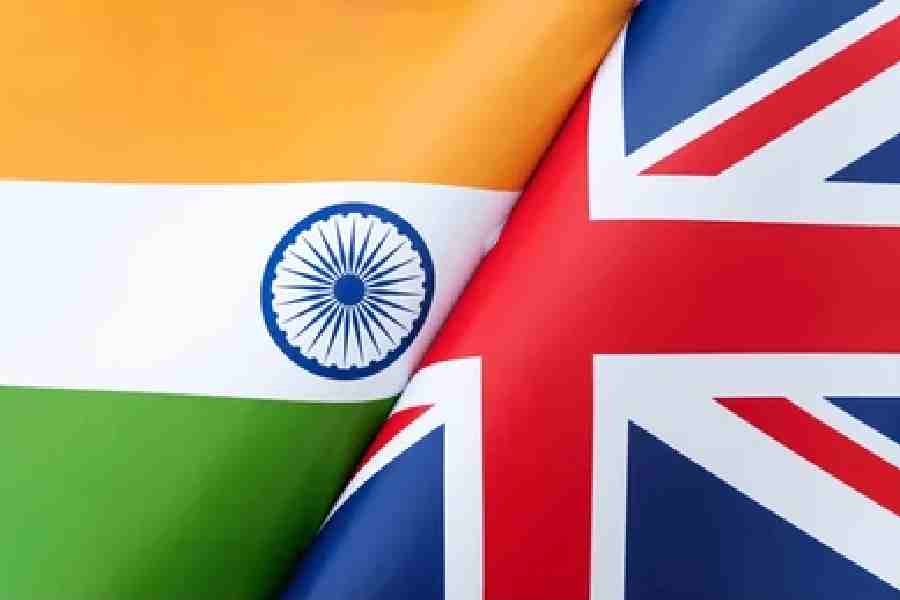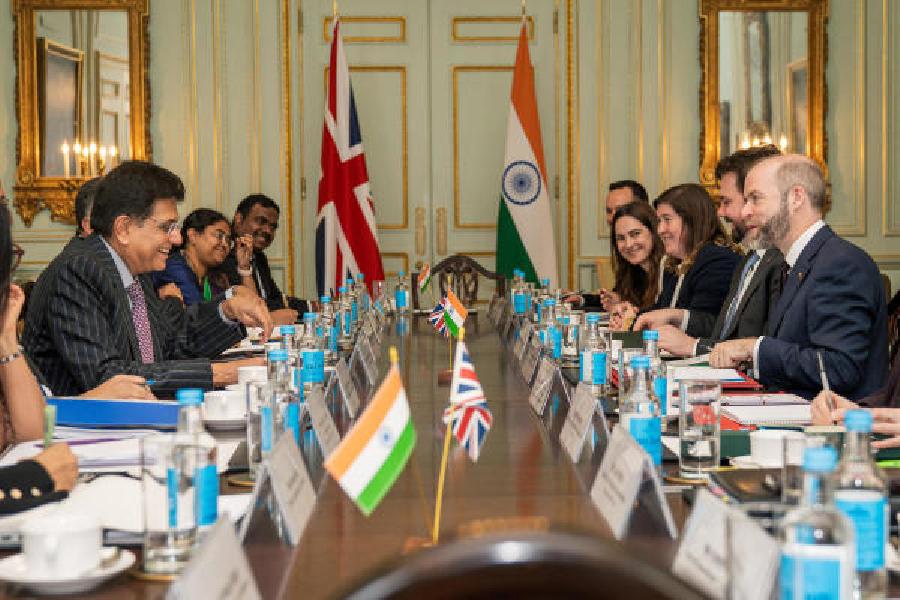Britain and India have struck a landmark free trade agreement, slashing tariffs and expanding market access, spurred by the global tariff upheaval unleashed by former US President Donald Trump — who claimed Tuesday that India had now agreed to drop tariffs on US imports to “nothing.”
Prime Minister Narendra Modi hailed the India-UK pact as “ambitious and mutually beneficial” and called it a turning point in the two countries’ strategic partnership. Among India’s notable wins was a longstanding demand: Indian professionals on short-term assignments in the UK will now be exempt from paying national insurance contributions, easing the financial burden on both workers and employers.
“In a historic milestone, India and the UK have successfully concluded an ambitious and mutually beneficial Free Trade Agreement,” Modi said in a post on X (formerly known as Twitter).
The agreement, which will give 99 per cent of Indian exports duty-free access to UK markets and benefit especially labour-intensive sectors, will “help catalyse trade, investment, growth, job creation, and innovation in both our economies,” Modi said.
Modi’s counterpart, British Prime Minister Keir Starmer, said the agreement — which will reduce 90 per cent of Indian tariffs on UK exports — “will grow the economy and deliver for British people and business.” Within a decade, 85 per cent of the items listed in the agreement will be tariff-free. “We are now in a new era for trade and the economy,” Starmer said.
The tariff turmoil unleashed by Trump jolted India and Britain in February into fa st-tracking talks on their own pact. For India, the treaty — opening up sectors like automotive and spirits — could act as a roadmap for trade deals that India is negotiating with the US, the European Union and other countries. The provisions of the agreement serve as a signal that the Modi government is willing to open up areas of the economy long shielded from foreign competition.
After three years of negotiations and four British prime ministers, the agreement is expected to boost bilateral trade by £25.5 billion (₹2.68 lakh crore or $34 billion) by 2040, up from £42 billion last year.
India, for its part, will gain 99 per cent duty-free access for its exports to the UK, particularly boosting labour-intensive sectors such as textiles and food products. The treaty also opens access in areas long protected from foreign competition, including spirits and automotive products, and could act as a roadmap for ongoing Indian trade negotiations with the US and European Union.
Among the headline provisions: tariffs on Scotch whisky and gin — a long-standing sticking point — will fall from 150 per cent to 75 per cent, eventually dropping to 40 per cent over the next decade. Car duties, once over 100 per cent, will fall to 10 per cent under a new quota system. British manufacturers will benefit from simplified rules of origin, allowing global sourcing without losing tariff preferences.
The UK will gain expanded access to Indian public procurement markets, while India retains protection in sensitive sectors like dairy and rice. The agreement also includes new mobility provisions for professionals and business travellers, streamlining secondments and temporary work arrangements — though it does not change the UK’s points-based immigration system.
“This is the biggest and most important free trade agreement that the UK has signed since Brexit,” said Lord Karan Bilimoria, former president of the Confederation of British Industry and now Chair of the UK wing of the International Chamber of Commerce. “India is the fastest-growing major economy in the world, and yet is only Britain’s 11th-largest trade partner.”
The Scotch Whisky Association called the agreement “a landmark moment,” noting that India was already the second-largest market for Scotch by volume in 2023. Carmakers are also eyeing tariff cuts as an opening to expand into India’s fast-growing market.
Commerce minister Piyush Goyal made back-to-back visits to the UK last week to finalise talks with British trade secretary Jonathan Reynolds, reviving stalled discussions that had paused for both countries' elections. “This Free Trade Agreement will be a catalyst and turbo-charge trade, business, and investment between the United Kingdom and India,” said Bilimoria. “Our bilateral trade will double to over 80 billion POUNDS within five years.”
British consumers could see lower prices on Indian shrimp, spices, footwear, and apparel, while Indian shoppers may benefit from cheaper British cosmetics, lamb, salmon, soft drinks, chocolate, and medical devices.
Currently, Indian exports to the UK face an average tariff of 4.2 per cent, while UK exports to India are subject to an average 14.6 per cent duty. The new agreement cuts Indian tariffs worth over £400 million a year, rising to £900 million within a decade, the British government said.
Still, the deal isn’t without critics. UK Conservative leader Kemi Badenoch warned that “when Labour negotiates, Britain loses,” and the Law Society of England and Wales criticised the agreement for failing to open up India’s tightly controlled legal services market.
Environmental provisions were another sticking point. One of the most difficult hurdles was the UK’s carbon tax — aimed at pricing carbon emissions — which India had argued could harm its industries. The final terms on how this issue was resolved have not been disclosed, but sources say India had sought UK compensation for any losses caused by the tax.
Meanwhile, Trump asserted that India had agreed to lower tariffs on American imports to “nothing” solely because of his pressure. “They’ve already agreed. They wouldn’t have done this for anybody else but me,” Trump said during a media interaction alongside Canadian Prime Minister Mark Carney.
India has not commented on Trump's claim. However, Bloomberg reports that sources familiar with the ongoing US-India trade talks say New Delhi has made a conditional proposal for a zero-for-zero tariff deal on certain US goods — including steel, auto parts, and pharmaceuticals — but only under strict caps on import volumes and based on mutual reciprocity. If imports exceed agreed thresholds, standard tariffs would be reinstated.
Along with the US and EU, India is currently also negotiating trade deals with Chile, and Peru. Modi’s government has already signed FTAs with the UAE, Australia, and the European Free Trade Association in recent years.
Modi said he looked forward to welcoming Starmer to India soon for a ceremonial signing of the agreement and further talks on deepening the relationship.
“This really opens the way for huge strides forward in our bilateral trade,” said Anuj Chande, head of Grant Thornton UK Advisory and Tax LLP. “It marks a seminal moment in the trading history of both the UK and India.”











